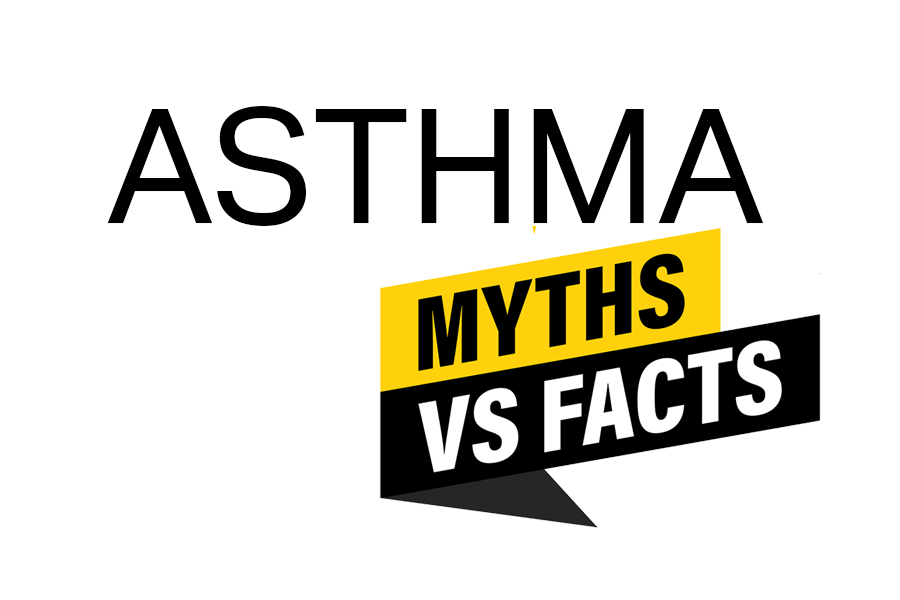Asthma affects some 25 million people in the U.S. reports the Asthma and Allergy Foundation. Currently, there are approximately 5.1 million children under the age of 18 in the U.S. with asthma. On an average day, 10 people in the U.S. die from asthma. Despite concerted education efforts by healthcare and advocacy organizations, myths about asthma persist. Here are some common myths – and the facts, from asthma experts.
“Asthma medications are habit forming, dangerous and lose their effectiveness over time.”
Allergy and Asthma Network states that asthma medications are safe and essential for asthma management, and that the chronic nature of the disease requires a routine of long-term medication use. “No asthma medication is habit-forming.” The network goes on to state that no asthma medication has been shown to lose its effectiveness for patients.(1)
“Asthma is a psychological condition.” “Not true,” states the Children’s Hospital of Philadelphia. “Some people used to believe that asthma was caused by an emotional problem. It is not true, asthma is due to problems in the lungs and the immune system’s over-reaction to triggers in the environment that we breathe in.”(2)
“People with asthma cannot exercise.”
“Research proves that regular physical activity can improve lung function and overall fitness of the asthma patient,” reports the Henry Ford Health System. “Studies have shown that those who participate in certain exercise programs experience less asthma-related symptoms compared to those who do not. Sports and exercise can have a positive influence on asthma symptoms, improve the quality of life and can steadily strengthen the lung. Physical activity will only lead to an asthma attack if the activity is too strenuous or if the asthma is monitored poorly.” (3)
“Asthma is only a childhood disease and is usually outgrown.”
Allergy and Asthma Network explains that while asthma usually develops as a childhood disease, it is rarely outgrown. “Asthma usually persists into adulthood. It can appear for the first time in some adults. Your asthma may improve as your lungs get larger or your immune system adapts over time. However, family history of asthma and sensitivity to allergens as a symptom trigger still remain – as does asthma.”(1)
(1) Allergy & Asthma Network, 5 Myths About Asthma, https://allergyasthmanetwork.org/
(2) Children’s Hospital of Philadelphia, Asthma Myths and Facts, https://www.chop.edu/news/
(3) Henry Ford Health System, Fact or Fiction, Busting 6 Myths About Asthma, https://www.henryford.com/blog/




